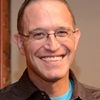This week on Marketing Smarts, we bring you the second half of the show we recorded live in Boston on October 2, this time featuring my interview with Kenn Elmore, dean of students at Boston University (check out the first half, featuring Constant Contact's Rick Jensen).
Don't miss a MarketingProfs podcast, subscribe to our free newsletter!
We invited Dean Elmore to the show because he has been a pioneer of sorts in his use of social media to build community, promote events, and disseminate information in an academic context.
When I asked him why he thought that other academic institutions had been more slow in their adoption of social media he told me, "HIgher-ed institutions move at a snail's pace. We're always looking at the analytics. We're always looking to test; we're always looking to 'make sure'—and that means we're always going for what's safe."
"Unfortunately," he continued, "when you're playing it that kind of safe, by the time you've figured it out we've moved well beyond where we need to be."
To avoid falling behind and, in fact, to get out ahead of where students and the other communities, Dean Elmore says, "You've got to try and test on the fly. You've got to see the sorts of things that actually work."
And most important, he emphasizes, you've got to be willing to take risks—and fail.
Inviting Them In
Among the objectives that Dean Elmore has set for his team in their use of social media is "reaching the unreachable." During our conversation, I asked him to explain what he meant by "the unreachable."
"That person," he said, "who...lurks and people-watches but won't participate…that person who might have moved out of the space or the sphere, maybe moved off-campus or moved outside of the normal life or flow that we've got…that person who's just too cool for all this sort of stuff…that person who is going to be hypercritical and thinking a little bit differently."
When he does reach the unreachable, Dean Elmore said, the goal is to invite them in and get them the message that, on the one hand he understands them and can relate to them (he said he was, in part, one of these folks) but also that "it's important that you be part of some sort of community where you might get some information that could be useful to you."
A Brand that Talks to People
When the dean and his team are reaching out to the unreachable, although they are doing so as individuals, they are also doing so as representatives of a brand, Boston University, and all that that brand can and does embody. Because that brand is all about community, it has to be personable (approachable, inviting, real) and it has to have a personality.
"Our brand has to talk to people," Dean Elmore said. "It can't just be about us putting information out there and people accepting it and running with it. We've got to have interaction; we've got to have the ability for people to criticize the brand. We've also got to have a mobility to the brand."
"The brand has to act like a person," he concluded.
And in this, he also saw an important lesson for brands more generally.
If you want people to relate to your organization, interact with your organization, identify with your organization, he said, "Make sure the brand has some personality.
If you would like to hear my entire conversation with Dean Elmore, you may listen above or download the mp3 and listen at your leisure. You can also subscribe to the Marketing Smarts podcast in iTunes or via RSS and never miss an episode!
...sign up for free to continue reading
Don't miss a MarketingProfs podcast, subscribe to our free newsletter!
Published on October 31, 2012




 Kenn Elmore, Dean of Students at Boston University, where he oversees more than 400 student organizations and assists students with a wide variety of concerns. He has also been called "The Tweeting Dean."
Kenn Elmore, Dean of Students at Boston University, where he oversees more than 400 student organizations and assists students with a wide variety of concerns. He has also been called "The Tweeting Dean."

